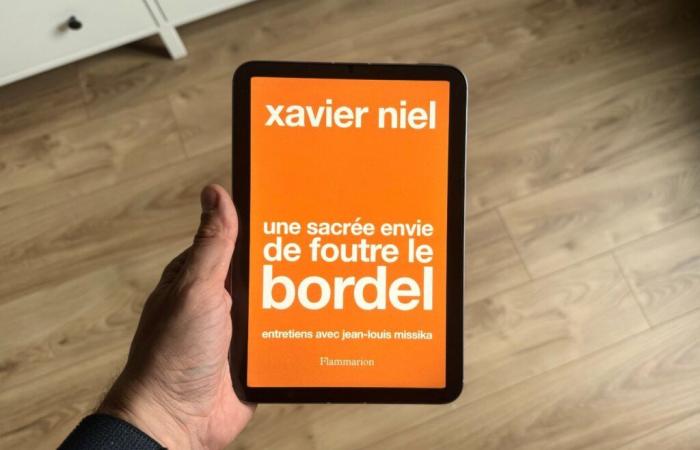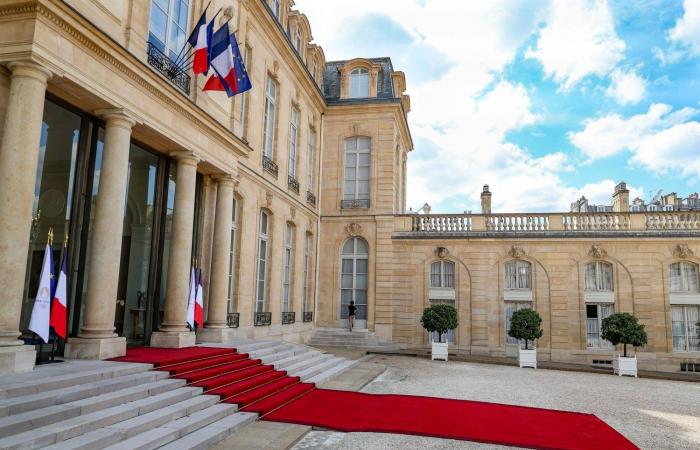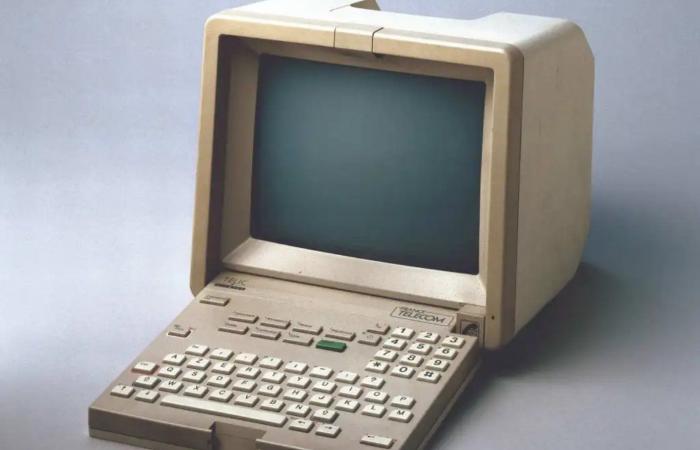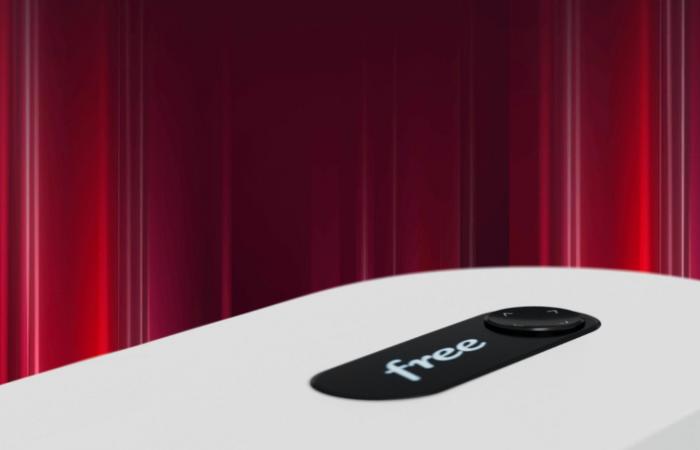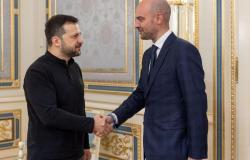After a one-man show at the Olympia which caused a stir, here is the book. At the beginning of October, Xavier Niel and his best friend Jean-Louis Missika published the book “A hell of a desire to make a mess” published by Flammarion. This book, which takes the form of a conversation between two friends (a bit like a podcast) looks back at the different stages of the journey of the “telecoms troublemaker”.
From his childhood in Créteil to his stay in prison, via school 42 and of course Freebox, Xavier Niel returns with his optimism, his banter and his unfiltered language on his very atypical journey.
Rather than summarizing the story of the young resident of Créteil from a modest family who became a billionaire, we chose 7 anecdotes at least as juicy as Xavier Niel’s media outings.
School 42: American failure
One of Xavier Niel’s great pride is undoubtedly School 42, this unique institution of its kind which trains tomorrow’s developers free of charge without teachers. Despite an innovative concept, success has not been achieved everywhere. Xavier Niel reveals in the book the difficulties encountered when establishing the school in the United States.
“We thought it would work like a letter in the mail”he confides. “But we encountered a completely different culture.” The model of free training without a diploma, so innovative in France, has not found its audience across the Atlantic. “The Americans didn’t understand why we were offering something for free. They thought there had to be a trap”explains Xavier Niel with a touch of bitterness. “If we had said the entry fee was $200,000, maybe it would have worked. But we didn’t try it.”
This experience, however, allowed the entrepreneur to learn valuable lessons on the adaptation of his concepts internationally. The case of Algeria is the perfect example. On several occasions, Xavier Niel traveled to Algerian soil in the company of the President of the Republic to establish School 42. But the ghost of colonization always prevented him from doing so. The project remains in his mind but he does not want to rush things.
The hacking of the Élysée phones
The most juicy anecdote in the book is undoubtedly the one where Xavier Niel tells how, at the age of 18, he managed to hack the phones at the Élysée. In 1986, the young Xavier, already passionate about IT and telecommunications, was approached by the DST (ancestor of the DGSI) for a particular mission.
“They wanted to prove the vulnerability of the presidential communications system”he explains. “I managed to intercept outgoing calls from the Élysée in just a few hours.” This technical feat, carried out with the approval of the secret services, enabled the DST to obtain a budget extension to strengthen the security of presidential communications.
Xavier Niel adds mischievously: “I never listened to Mitterrand’s conversations, but I could have. It was quite a responsibility for an 18-year-old kid!”
His stay in prison

An entire chapter of the book is devoted to a little-known episode in the life of Xavier Niel: his incarceration in 2004 in connection with a case of alleged pimping. Although he ultimately benefited from a dismissal of the charges, these few weeks spent behind bars had a profound impact on the entrepreneur.
“It was a traumatic experience, but also very educational”he confides. “I understood the importance of freedom and developed a new empathy for those who are excluded from society.” This experience strengthened his determination to succeed and prove his innocence.
Xavier Niel recounts, not without a certain emotion, how this difficult period also revealed the loyalty of those close to him and his teams at Free. “They never doubted me and continued to move the company forward in my absence. That’s when I understood that I had built something solid.”
Later, when he returned to Créteil, his hometown, to speak in a high school, he explains that the young people agreed to listen to him when he told them that he had spent time in prison.
The Minitel: a small miracle for France
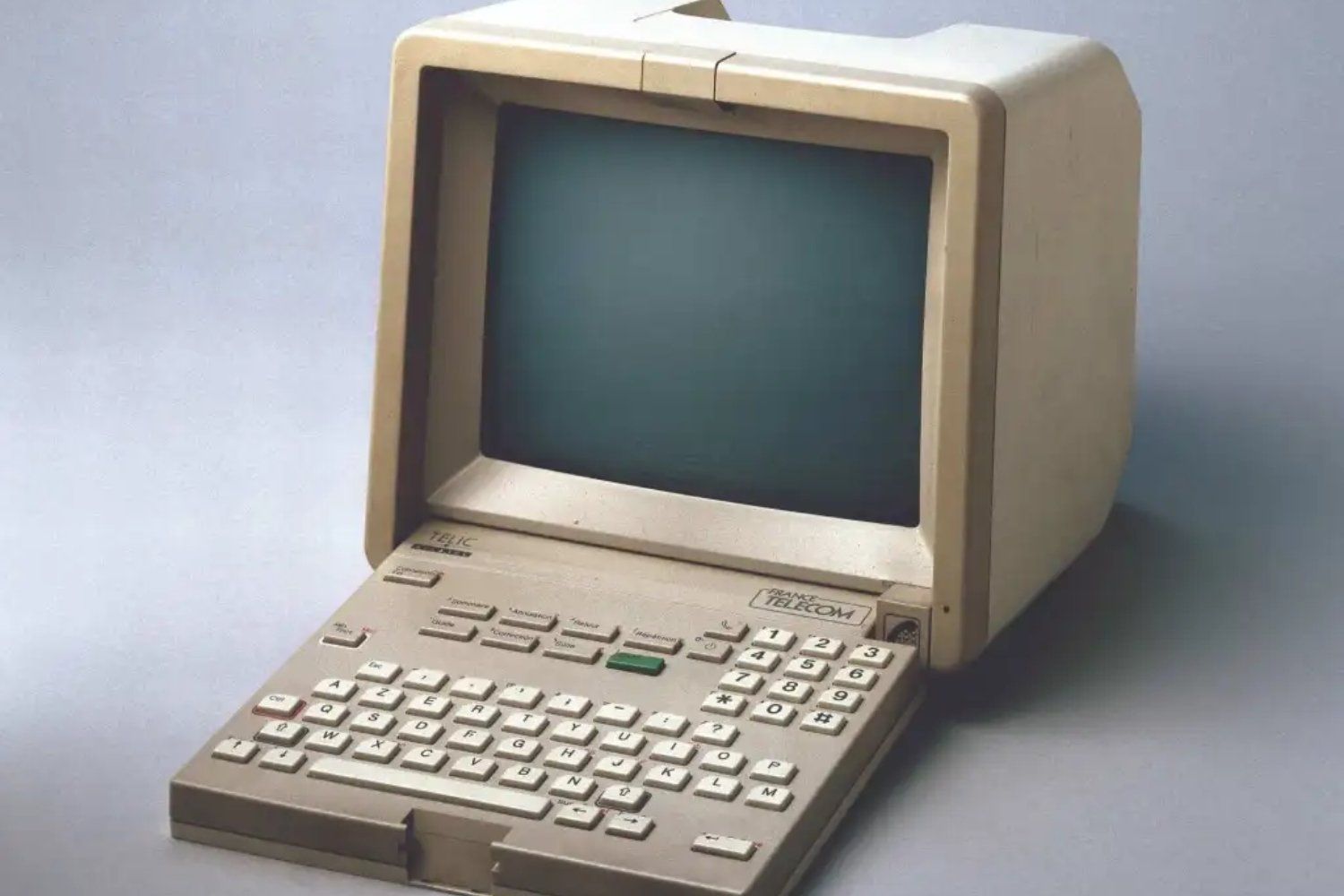
The book also returns to the Minitel. Xavier Niel looks back on the epic of this “little miracle for France”. With a mixture of admiration and regret, he analyzes the strengths and weaknesses of this French innovation which preceded the Internet.
“The Minitel was the result of the stroke of genius of one or two guys who had the political courage of Giscard who gave the green light”he explains. “We must not forget that we have equipped all French households with a Minitel!”
However, Xavier Niel points the finger at the bureaucratic management which followed this initial innovation. “Afterwards we entrusted all that to the administration. And there it went with a bang”he laments. For him, this episode perfectly illustrates France’s difficulties in transforming its innovations into lasting successes on a global scale. This did not prevent him from making his fortune with the pink Minitel before building Iliad.
The origins of the Freebox

The book also lifts the veil on the beginnings of the Freebox, this small box unique in its kind at the time which revolutionized access to the Internet in France. Xavier Niel tells with passion how the idea was born from a simple observation:
“We wanted people to be able to have Internet at home without needing a computer.”
It reveals the technical and financial obstacles that had to be overcome to realize this vision. “We were told that it was impossible, that it would cost too much. But we persisted”he remembers. Moreover, his best friend, co-author of the book, met him at that time while he was working for an investment firm. He had to decide on the Free project, which was completely crazy at the time. But Xavier Niel’s determination paid off: Free has become a key player in the French telecom landscape.
Xavier Niel also shares a funny anecdote about the choice of the name “Freebox”: “We wanted a name that stood out. Someone jokingly suggested ‘Freebox’, and it made us laugh. In the end, we kept it!”
Call centers: the “workers of the 21st century”

Xavier Niel also returns to the call center controversy. In a public intervention, he described the employees of these structures as“workers of the 21st century”a formulation which shocked at the time.
In the book, Xavier Niel returns to this statement.“It was very awkward. I wanted to say that it’s a very hard job, but I didn’t use the right words.” he explains. He then details his vision to improve working conditions in this sector, in particular by creating mini-call centers of fewer than ten people.
“We launched an experiment five years ago”he says. “Today, more than 40% of support is already done like this and it continues to develop.”
Station F: the meeting with François Hollande
The story of the creation of Station F, the world’s largest start-up incubator, occupies an important place in the book. Xavier Niel notably recounts his surprising meeting with François Hollande, then President of the Republic.
“Hollande came to visit the Station F construction site”remembers Xavier Niel. “He said to me: ‘It’s great what you’re doing, but how much is it going to cost the state?’ I had to explain to him that it was an entirely private project, financed from my personal funds.”
This anecdote illustrates, according to Xavier Niel, the difficulty some politicians have in designing large-scale projects without state intervention. “I invested 250 million euros in Station F”he specifies. “It was important for me to do it alone, to prove that French entrepreneurship could achieve great things without subsidies.”
In revenge, Xavier Niel also benefited from the enlightenment of President Hollande. During the presentation of the project, the boss of Free explained to François Hollande that he wanted to create a center of 1,000 start-ups. A figure as impressive as it is symbolic. And François Hollande replied: “but are you sure there are 1,000 start-ups in France?”. Indeed, driven by his optimism, Xavier Niel had forgotten this slight detail.
???? To not miss any news from Presse-citron, follow us on Google News and WhatsApp.

